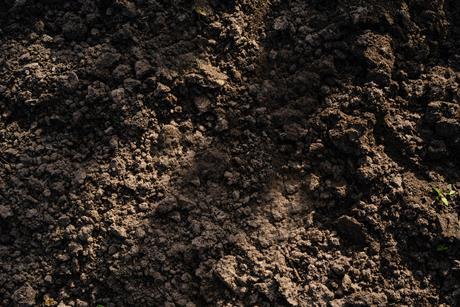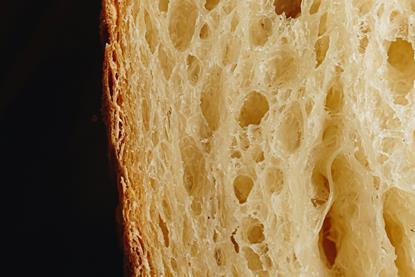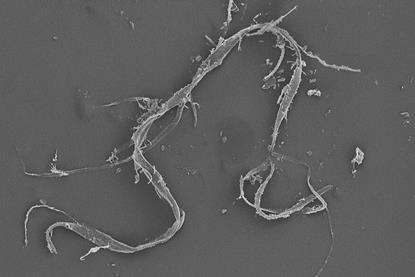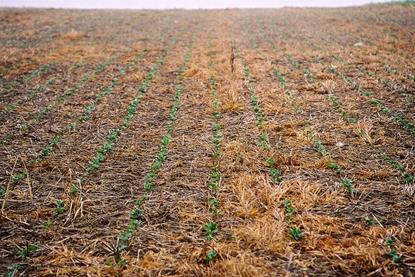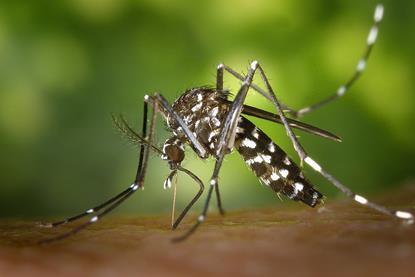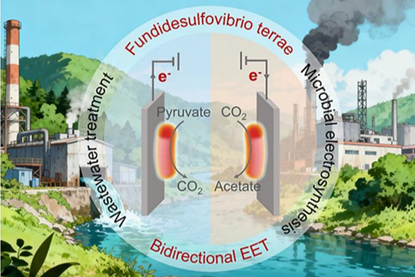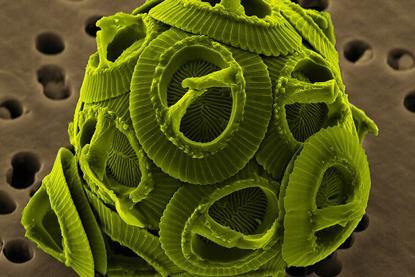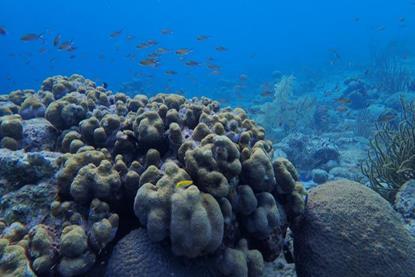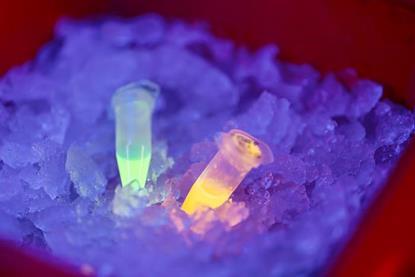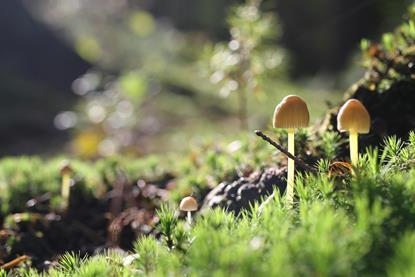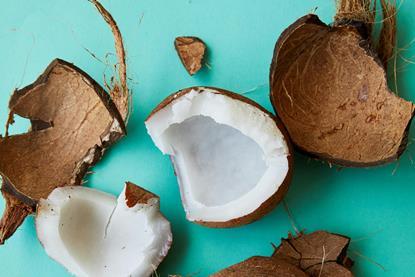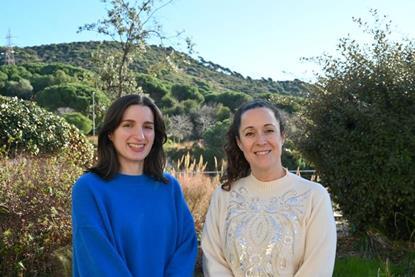Climate action
Today we are seeing climate change in action, increased concentrations of atmospheric greenhouse gases have led to a rise in sea levels, temperatures, and extreme weather patterns. Researchers have acknowledged the pivotal role microorganisms in producing sustainable biofuels, increasing carbon sequestration via soil microbes and reducing methane emissions in landfill sites. Microbial innovation will be vital in moving towards a low carbon economy.
News
Microbes unlock a hidden natural source of mercury emissions from ‘stable’ minerals
A new study reports a previously overlooked natural mechanism that could contribute substantially to global mercury emissions. Researchers show that chemolithoautotrophic microbes can use mercury sulfide nanominerals as an energy source and, in the process, release volatile Hg0 into the air.
Read story- News
Mountain soils in arid regions may emit more greenhouse gas as climate shifts, new study finds
A new field study from northwestern China reveals that climate-driven changes in temperature and moisture could significantly reshape nitrous oxide emissions from soils in arid mountain ecosystems, with important implications for future climate feedbacks.
- News
Source or sink? Trees with heart rot disease emit more methane, upending forest carbon models
New research suggests that upland forests harboring trees with a common and incurable fungal disease known as heart rot could actually be emitting more methane than they take in, therefore releasing more greenhouse gases than previously thought.
- News
Will melting glaciers slow climate change? A prevailing theory is on shaky ground
In what researchers describe as the most accurate measurement of iron inputs from a glacier in Antarctica, marine scientists have discovered that meltwater from an Antarctic ice shelf supplies far less iron to surrounding waters than once thought.
More Climate change
News
Applied Microbiology International launches new report on improving soil health in the UK
Scientists have warned that the world’s tiniest organisms need to be taken into account in efforts to improve soil health. AMI has launched a new policy report setting out key recommendations to support the long-term protection, restoration and sustainable management of soils across the UK’s four nations.
- News
How bacteria can reclaim lost energy, nutrients, and clean water from wastewater
A new review explores how technologies using electricity-generating bacteria—like those already piloted at the UK’s Glastonbury Festival and in field trials in Uganda, Kenya, and South Africa—could help us reclaim resources currently being flushed away.
- News
Breadcrumbs lead to fossil free production of everyday goods
The humble breadcrumb could hold the key to cutting out fossil fuels from one of the chemical industry’s most widely used reactions. Scientists have found a one-pot microbial formula that uses waste bread to replace fossil fuel-derived hydrogen in hydrogenation.
- News
Microplastics in soil may reshape microbial genes and threaten ecosystem stability
A new review highlights how microscopic plastic particles accumulating in soils can alter microbial genes that control essential ecosystem functions, potentially affecting food production, climate processes, and environmental health.
- News
Methane’s missing emissions: The underestimated impact of small sources
Although efforts are being made to reduce the contribution of big polluters to methane in Japan, new research suggests that smaller sources are vastly underestimated in the Osaka metropolitan area. The team found unaccounted emissions from numerous small sources, including restaurants, commercial facilities, and private residences.
- News
Peatland lakes in the Congo Basin release carbon that is thousands of years old
Researchers have discovered that large blackwater lakes in the extensive peatlands of the central Congo Basin are releasing ancient carbon. How the carbon is mobilised from the peat to the lake, where it is finally released to the atmosphere, is still unknown.
- News
Lower tillage boosts the soil’s natural phosphorus cycle - cutting the need for costly fertilizer inputs
Long-term tillage reduction helps to restore the soil’s natural phosphorus cycle, supporting more sustainable nutrient management with less reliance on costly and finite fertilizer inputs, according to a new study published in Sustainable Microbiology.
- News
Debilitating virus can spread in cool weather, increasing health risk in Europe
Chikungunya virus, a debilitating tropical disease caused by infected mosquito bites, poses a greater health threat in Europe than previously thought because it can be spread when air temperatures are as low as 13 degrees Celsius.
- News
Webinar: What does it mean when environmental microbiomes are described as resilient?
Environmental microbiomes are often described as ‘resilient’ - but what does that even mean? A free upcoming webinar and coffee hour delivered by Dr Ashley Shade, as part of the Microbes and Social Equity 2026 Speaker Series, aims to find out.
- News
Newly discovered bacterium converts carbon dioxide into chemicals using electricity
A newly identified soil bacterium may help unlock cleaner ways to recycle carbon dioxide and produce valuable chemicals using electricity. The sulfate reducing bacterium Fundidesulfovibrio terrae possesses an unusual ability to both export and absorb electrical energy while converting carbon dioxide into acetate.
- News
Microscopic plankton reveal tropicalization of the Mediterranean Sea
A recent study of the western Mediterranean demonstrates that the expansion of microscopic warm-water species provides a clear and early indication of tropicalization impacts on marine ecosystems.
- News
Corals in extreme coastal bays show greater resilience to climate stress
Corals living in coastal bays with strongly fluctuating temperatures and environmental conditions are better able to withstand heat and other stressors than their counterparts on more stable reefs.
- News
Living material makes harmful UV light visible – Functional coating made from proteins and bacteria
Researchers have developed a T-shirt coating - using proteins and bacteria - that reliably detects contact with UV-A radiation, is bio‑based, and could open the door to a wide range of new materials that draw on the biological functions of cells.
- News
Recycling strategies of fungi can affect how forests store carbon
Some fungi are wasteful, while others recycle – and this can determine how much carbon is stored in a forest. Researchers have revealed how fungi manage their mycelium, the network that builds the structure of fungus. The results could provide new insights into the carbon cycle and climate.
- News
Seashells and coconut char: A coastal recipe for super-compost
Researchers have developed a calcium-modified biochar that speeds up waste recycling and creates nutrient-rich soil, boosting specialized microbial communities that break down tough materials like lignin and convert them into stable humus.
- News
Root microbes could help oak trees adapt to drought
Microbes could help oak trees cope with environmental change. A study observing oaks growing in a natural woodland found that the trees’ above- and below-ground microbiomes were resilient to drought, nutrient scarcity, and exposure to pathogenic beetles and bacteria.
- News
Deep-sea microbes get unexpected energy boost
A study shows that sinking organic particles—known as marine snow—begin to leak dissolved carbon and nitrogen when they reach depths of 2–6 kilometres, presenting microbes in the surrounding seawater with nutrients. The leakage is caused by the intense hydrostatic pressure in the deep ocean.
- News
Scientists explain why methane spiked in the early 2020s
A combination of weakened atmospheric removal and increased emissions from warming wetlands, rivers, lakes, and agricultural land increased atmospheric methane at an unprecedented rate in the early 2020s, an international team of researchers report.
- News
Large-scale study analyses the impact of climate on Legionnaires’ disease in Catalonia
A study has analysed the relationship between climatic conditions, the presence of Legionella in water systems and cases of Legionnaires’ disease in Catalonia. The link between these different factors highlights the need to adapt prevention and surveillance strategies in the context of climate change.




